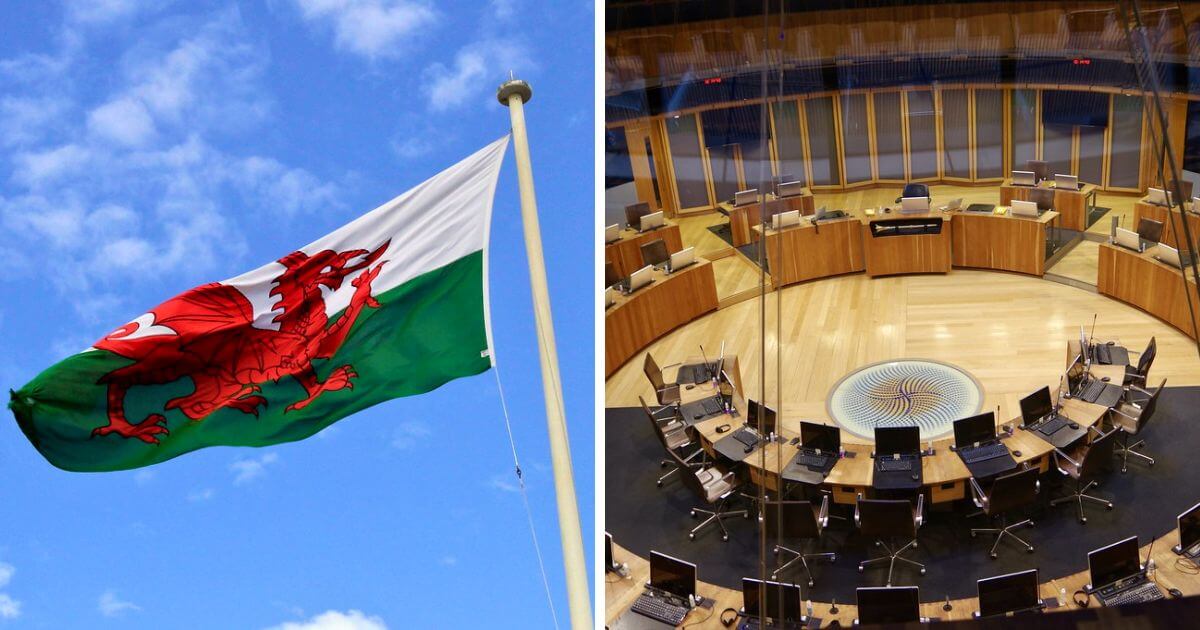In a setback for supporters of assisted suicide, the Welsh Parliament (Senedd) may refuse to implement assisted suicide in the NHS in Wales even if the assisted suicide Bill is passed in Westminster.
After passing Third Reading in the House of Commons last month, Kim Leadbeater’s Terminally Ill Adults (End of Life) Bill is expected to receive its Second Reading in the House of Lords later this year. However, even if the Bill manages to make it through the Lords and attain Royal Assent, there is no guarantee that the practice will be available in Wales due to health being a devolved matter.
Yesterday, during a sitting of the Health and Social Care Committee in the Senedd, Welsh Health Secretary Jeremy Miles acknowledged that while the Senedd would be unable to prevent the Bill from becoming law, its members would have to make regulations to permit assisted suicide on the NHS in Wales.
Speaking to the Senedd’s Health Committee, in response to Conservative chair Peter Fox’s question on whether the Senedd could choose to refuse to implement parts of Leadbeater’s Bill, Miles said “In devolved competence, certainly”.
“And even if the government wanted to and the Senedd didn’t want to approve it the Senedd would have that ability as well”.
Miles added “In order for those regulations to be laid, which would be necessary in order for, for example, the NHS to provide this service in Wales, then a Welsh Government…would need to make a policy decision to be open to introducing the service, then to lay the regulations and for the Senedd to approve those”.
“So that’s in relation to services provided in the public sector… by the NHS, because that’s within devolved competence”.
Senedd opposes imposition of assisted suicide in Wales
Last October, the Senedd voted decisively to reject a motion calling for Westminster to introduce assisted suicide, making it clear that the Welsh Senedd opposes the imposition of assisted suicide on Wales by MPs.
Senedd members voted 26 votes to 19 against the motion. The Welsh First Minister, Eluned Morgan and Jeremy Miles, both voted against the motion.
In April, the Welsh Government published a Legislative Consent Memorandum (LCM) confirming that Labour ministers in Wales are of the view that the Leadbeater Bill requires the consent of the Senedd.
The LCM says the Bill contains provisions that concern “devolved matters and therefore trigger the requirement for consent”.
While the power to make assisted suicide legal is not devolved to Wales, health is a devolved issue. This means the Welsh NHS, governed by the Welsh Parliament, would be responsible for implementing assisted suicide. It is expected that Senedd members will vote on how a new law affects devolved areas after October.
If Senedd members continue to oppose the imposition of the Bill, Welsh doctors could be prohibited from providing the service, as Miles confirmed., when Conservative chair Peter Fox asked him “On regulations – if they are not made by the Welsh Government and consequently approved by this Senedd, the NHS in Wales will not be able to provide assisted dying services – is that the case?”, he replied “That is correct”.
Miles said assisted suicide “could only be introduced in devolved areas following regulations laid by the Welsh ministers… and subject to an affirmative Senedd vote. For anything which is in devolved competence there will need to be regulations passed by the Senedd before the service can be provided”.
Dangers of private companies providing assisted suicide in Wales
During the committee session, it was also acknowledged that private companies could provide assisted suicide in Wales. Conservative MS James Evans said “You could have a situation in Wales where those who could afford to pay for assisted dying could access it, and those who cannot afford it would not be able to access it”.
Acknowledging this, Miles said “There would be options in England and Wales for services to be provided other than in the public sector, as it is in other parts of the world, obviously”.
Assisted suicide legalisation “would send a clear message that some lives are not worth living”
During the debate last October, Joel James, member for South Wales Central, said “It has been repeatedly proven that assisted dying laws, when introduced, descend quickly into a range of problems, from coercion by relatives to the hand-picking of specific doctors willing to euthanise. It would, I believe, set a dangerous precedent and lead to a catalogue of unintended consequences if it was introduced into the UK”.
Darren Millar, member for Clwyd West, said “[L]egalising assisted suicide would send a clear message that some lives are not worth living, and I don’t think that that’s a message that any civilised society, frankly, should be promoting to any of its citizens, especially when there are many people across Wales right now who are enjoying a fulfilling life in spite of their terminal illness, or in spite of a debilitating condition”.
Spokesperson for Right To Life UK, Catherine Robinson, said “The Welsh Parliament has previously shown that it firmly rejects the imposition of an assisted suicide regime on Wales”.
“We strongly urge Senedd members to continue to oppose the imposition of the Bill, since it will be the most vulnerable who will suffer and safeguards will be eroded”.
“People in Wales at the end of their lives deserve high-quality palliative care, not assisted suicide”.












